Venezuela, officially the Bolivarian Republic of Venezuela, is located on the northern coast of South America. It includes a continental landmass and Caribbean islands, covering 912,050 km2. Its estimated population is 31.8 million by 2025, with Caracas as its capital and largest city. Venezuela borders the Caribbean Sea and Atlantic Ocean to the north, Colombia to the west, Brazil to the south, Trinidad and Tobago to the northeast, and Guyana to the east. It's divided into 23 states, a Capital District, and federal dependencies comprising its offshore islands. Venezuela is highly urbanized, with most of its population residing in the northern cities and the capital.
1903: Resolution of Venezuela Crisis
In 1903, the Venezuela crisis was resolved through international arbitration at the Permanent Court of Arbitration.
1908: Dispute with Netherlands and Overthrow of Castro
In 1908, another dispute broke out with the Netherlands, which was resolved when Castro left for medical treatment in Germany and was promptly overthrown by Juan Vicente Gómez.
1923: German Hyperinflation Comparison
The projected hyperinflation rate for Venezuela in 2018 was compared to that of Germany in 1923 during its period of hyperinflation.
1935: Highest GDP in Latin America
By 1935, Venezuela's per capita gross domestic product was the highest in Latin America, due to the discovery of oil deposits.
1935: Gomecista Dictatorship Continues
In 1935, the gomecista dictatorship system largely continued under Eleazar López Contreras after the death of Gómez.
1935: Gómez Rules Until Death
Juan Vicente Gómez ruled Venezuela until his death in 1935.
1941: Reforms Under Angarita
From 1941, under Isaías Medina Angarita, the gomecista dictatorship was relaxed and Angarita granted a range of reforms, including the legalization of all political parties.
1943: 50/50 split in profits
In 1943, the Venezuelan government introduced a new law that mandated a 50/50 split in profits between the government and the oil industry.
1945: Civilian-Military Coup
In 1945, a civilian-military coup overthrew Angarita and ushered in a period of democratic rule.
1945: Foundation of the Venezuelan Professional Baseball League
In 1945, the Venezuelan Professional Baseball League was founded.
1947: Rómulo Gallegos wins election
In 1947, Rómulo Gallegos won the Venezuelan presidential election, marking the first free and fair elections in Venezuela.
1948: Military Coup
In 1948, Gallegos was overthrown by a military junta led by Luis Felipe Llovera Páez, Marcos Pérez Jiménez, and Carlos Delgado Chalbaud.
1948: Military Junta Rule Begins
In 1948, a military junta began its rule, which lasted until 1958.
1950: Death of Chalbaud
In 1950, Chalbaud died in a bungled kidnapping; Pérez Jiménez was suspected of being behind the death.
1950: Total population
Venezuela's total population in 1950 was 5,482,000.
1952: Jiménez Installed as President
In 1952, after the junta unexpectedly lost the presidential election, it ignored the results and Jiménez was installed as president.
1953: Name change to República de Venezuela
In 1953, the official name of Venezuela changed again to República de Venezuela.
January 1958: Jiménez Forced Out
On January 23, 1958, Jiménez was forced out of power.
1958: Democratic Governments Emerge
From 1958, Venezuela experienced a series of democratic governments, a notable exception in a region largely under military dictatorships, and this period was characterized by economic prosperity.
1959: Guerrilla Movements
During the presidency of Rómulo Betancourt starting in 1959, substantial guerilla movements occurred.
1959: Enabling Acts for Presidents
Since 1959, six Venezuelan presidents have been granted the ability to rule by decree in specified policy areas via enabling acts passed by the National Assembly.
1960: Attack on Betancourt
In 1960, Betancourt suffered an attack planned by the Dominican dictator Rafael Trujillo.
1960: Creation of OPEC
In 1960, Hydrocarbons Minister Juan Pablo Pérez Alfonso led the creation of OPEC, a consortium of oil-producing countries aiming to support the price of oil.
1962: Failed Revolts
In 1962, leftists tried to destabilize the military corps, with failed revolts.
1964: Guerrilla Movements
During the presidency of Raúl Leoni starting in 1964, substantial guerilla movements occurred.
1966: Geneva Agreement Signed
In 1966, the British and Venezuelan governments signed the Geneva Agreement in an attempt to resolve the conflict over the Guayana Esequiba territory peacefully.
1968: Caldera wins election
In 1968, Caldera won the election for COPEI, marking the first time a party other than AD took the presidency through a democratic election.
1969: Caldera's First Presidency
In 1969, Rafael Caldera began his first presidency, during which most guerilla movements laid down their arms.
1969: Administrative Regions Established
In 1969, the states of Venezuela were grouped into nine administrative regions by presidential decree.
1970: Port of Spain Protocol
In 1970, the Port of Spain Protocol was established, setting a deadline to resolve the Guayana Esequiba issue, though it was ultimately unsuccessful.
1973: Venezuela voted to nationalize its oil industry outright
In 1973, Venezuela voted to nationalize its oil industry outright.
1973: Oil Crisis and Pérez Election
In 1973, the Venezuelan presidential election of Carlos Andrés Pérez coincided with an oil crisis, in which Venezuela's income exploded as oil prices soared.
January 1976: Nationalization of oil industry effective
On January 1, 1976, Venezuela's nationalization of its oil industry became effective, with Petróleos de Venezuela (PDVSA) taking over.
1976: Nationalization of Oil Industries
In 1976, oil industries in Venezuela were nationalized.
1982: Chávez Promises to Depose Governments
In 1982, Hugo Chávez promised to depose the bipartisanship governments.
1983: Devaluation of Currency
In 1983, the government started to devalue the currency to face its financial obligations, leading to a dramatic fall in standards of living.
1983: Caracas Metro operating since
The Caracas Metro has been operating since 1983 in Venezuela.
1989: Caracazo Riots
In 1989, hundreds of people were killed by security forces and the military in the Caracazo riots, during the second presidential term of Carlos Andrés Pérez.
1990: Forest Cover Loss
Between 1990 and 2005, Venezuela lost 8.3% of its forest cover.
February 1992: Coup Attempt by Chávez
In February 1992, Hugo Chávez led a coup attempt, using growing anger at economic austerity measures to justify it.
1992: Attempted Coups
In 1992, Venezuela experienced two attempted coups, contributing to the major political crises of the time.
1993: Pérez Impeached
In 1993, Pérez was impeached under embezzlement charges, leading to the interim presidency of Ramón José Velásquez.
1993: Impeachment of President
In 1993, a president was impeached for embezzlement of public funds, contributing to the political instability of the time.
March 1994: Chávez Pardoned
In March 1994, coup leader Chávez was pardoned by President Rafael Caldera, with a clean slate and his political rights reinstated.
1994: Banking Crisis
Venezuela experienced a major banking crisis in 1994.
1995: Corruption Perceptions Index Started
Since the start of the Corruption Perceptions Index in 1995, Venezuela has consistently ranked as one of the most corrupt countries.
1996: Inflation Peaks at 100%
In 1996, Venezuela experienced an economic crisis, during which inflation peaked at 100%.
1997: Fifth Republic Movement founded
In 1997, Chavez founded the Fifth Republic Movement.
1998: Chávez Elected President
In 1998, Chávez was elected president, launching the Bolivarian Revolution.
January 1999: Amnesty for offenses since January 1999
In January 1999, the opposition sought to grant amnesty from prosecution for offenses committed since January 1999, including participation in the 2002 coup attempt.
1999: Venezuelans who had left Venezuela since
A 2014 study indicated that over 1.5 million Venezuelans, approximately 4% to 6% of the country's population, had left Venezuela since 1999.
1999: Adoption of Constitution
Following the adoption of the Constitution in 1999, Venezuela has been considered the Bolivarian Republic.
1999: Chávez maintains the presidency
In 1999, Chávez continued to maintain the presidency after being pardoned in 1994.
1999: Constitution recognizes indigenous peoples' rights
In 1999, Venezuela's constitution recognized the multi-ethnic, pluri-cultural, and multilingual character of Venezuela and includes a chapter devoted to indigenous peoples' rights.
1999: Constituent Assembly
In 1999, a constituent assembly was formed to write a new constitution as part of the Bolivarian Revolution.
1999: New Constitution of Venezuela
In 1999, during the Constituent Assembly, a new Constitution of Venezuela was written and ratified.
1999: Jewish community
In 1999, the Jewish community had shrunk from 22,000.
1999: Carmona nullifies the constitution
In 1999, the interim president Pedro Carmona tried to nullify the constitution.
1999: Name change to República de Venezuela
In 1999, the official name of Venezuela changed from Estados Unidos de Venezuela to República de Venezuela.
September 2000: Millennium Development Goals Agreed To
In September 2000, Venezuela and 188 other nations agreed to the Millennium Development Goals, influencing social policies.
2000: Chávez wins elections
In 2000, Chávez won the elections.
2001: Recovery of Oil Prices
After 2001, the recovery of oil prices boosted the Venezuelan economy and facilitated social spending.
2001: Censo poblacional
Los resultados arrojados por el censo poblacional realizado por el Instituto Nacional de Estadísticas en el 2011 demuestra que las poblaciones indígenas ha aumentado progresivamente con respecto al censo del año 2001.
2001: Law placing limits on foreign investment
Under Hugo Chávez, a 2001 law was enacted that placed limits on foreign investment in Venezuela.
December 2002: National Strike Begins
In December 2002, a national strike began, lasting until February 2003.
2002: Poverty Rate
From 2002 to 2011, the poverty rate declined from 48.6% to 29.5%.
2002: U.S. Recognition of Interim Presidency
In 2002, relations between Venezuela and the United States worsened after the U.S. government recognized Pedro Carmona's short-lived interim presidency during a coup attempt.
2002: Amnesty for participation in the 2002 coup attempt
In 2002, the opposition sought to grant amnesty from prosecution for participation in the 2002 coup attempt.
February 2003: Dismissal of PDVSA workers
As a result of the national strike between December 2002 and February 2003, around 40% of PDVSA's workforce, approximately 18,000 workers, were dismissed.
February 2003: National Strike Ends
In February 2003, the national strike ended, including a strike/lockout in the state oil company PDVSA.
2003: Economy Growth
From 2003 to 2010, the economy grew by 95%.
2003: Start of Drug Transit Period
From 2003, Venezuela became a significant transit country for Colombian cocaine and other drugs heading to the United States and Europe.
2003: Land Under Conservation Management
In 2003, 70% of Venezuela's land was under conservation management in over 200 protected areas, including 43 national parks.
2003: Implementation of Currency Controls
In 2003, the Venezuelan government implemented currency controls following capital flight and currency devaluation, which led to a parallel market of dollars.
2004: Recall Referendum
In 2004, Chávez survived a recall referendum.
2004: Chávez wins presidential referendum
In 2004, Chávez won the presidential referendum.
2004: Sewage treatment plants
In 2004, Venezuela had 150 sewage treatment plants.
2005: Forest Cover Loss
Between 1990 and 2005, Venezuela lost 8.3% of its forest cover.
2005: School enrollment rate
In 2005, Venezuela's net primary school enrollment rate was at 91% and the net secondary school enrollment rate was at 63%.
2006: Human Development Index
From 2006 to 2011, Venezuela moved up seven spots on the Human Development Index.
2006: PDVSA's External Debt Increases
From 2006 to 2013, PDVSA's external debt increased from $3 billion to $35 billion.
2006: Chávez wins elections
In 2006, Chávez won the elections.
2006: Child malnutrition
In 2006, child malnutrition in Venezuela was 17%, with Delta Amacuro and Amazonas having the nation's highest rates.
2006: Manufacturing Contribution to GDP
In 2006, manufacturing contributed 17% of Venezuela's GDP.
2006: Democracy Index Rating
In 2006, the Economist Intelligence Unit rated Venezuela a hybrid regime and the third least democratic regime in Latin America on the Democracy Index.
2006: Oficina Nacional Antidrogas Incorporated
In 2006, the Oficina Nacional Antidrogas (National Anti-Drug Office) was incorporated into the office of the vice-president.
2006: Chavez Elected for Another Term
In December 2006, Chavez was elected for another term.
2007: New asylum seekers entered Venezuela
In 2007, 10,600 new asylum seekers entered Venezuela.
2007: United Socialist Party of Venezuela Founded
In 2007, Chavez founded the United Socialist Party of Venezuela.
2007: London Proms
In 2007, the Simón Bolívar Youth Orchestra hosted at the London Proms, and has received several honors.
2008: Autosomal DNA study
According to an autosomal DNA study conducted in 2008 by the University of Brasília, the composition of Venezuela's population is 60.60% European, 23% Indigenous, and 16.30% African.
2008: World Refugee Survey
According to the World Refugee Survey 2008, published by the U.S. Committee for Refugees and Immigrants, Venezuela hosted a population of refugee and asylum seekers from Colombia numbering 252,200 in 2007.
2008: Armed Reserve Incorporated
As of 2008, an additional 600,000 soldiers were incorporated into a new branch of the military, known as the Armed Reserve.
2008: Nordic Skiing
Cesar Baena has represented Venezuela since 2008 in Nordic Skiing.
2008: Literacy rate
In 2008, 95.2% of Venezuela's adult population was literate.
2008: Crime as Voters' Number One Concern
In 2008, polls indicated that crime was the number one concern of voters in Venezuela.
2008: First US Sanctions
In 2008, the first US sanctions against Venezuelan officials were imposed.
2008: End of Drug Transit Period
In the period between 2003 and 2008, authorities seized the fifth-largest total quantity of cocaine in the world.
February 2009: Presidential Re-election
As of February 2009, a Venezuelan president may be re-elected an unlimited number of times.
December 2009: Coordination Between Government Branches
In December 2009, Supreme Court president Luisa Estela Morales said that Venezuela had moved away from "a rigid division of powers" toward a system characterized by "intense coordination" between the branches of government.
2009: FIS Cross Country Ski World Cup on Düsseldorf
Cesar Baena was the first South American skier to compete in a FIS Cross Country Ski World Cup on Düsseldorf 2009.
2010: Economy Growth
From 2003 to 2010, the economy grew by 95%.
2010: Crude oil reserves proven
In 2010, Venezuela proved another 40.4% in crude oil reserves compared to 2009, surpassing Saudi Arabia as the country with the largest reserves of this type.
2010: Corruption Perceptions Index Ranking
In 2010, Venezuela was ranked 164 out of 178 countries in government transparency according to the Corruption Perceptions Index.
2010: Hindus in Venezuela
In 2010, there were 580 Hindus in Venezuela according to the Association of Religion Data Archives.
November 2011: Repatriation of Gold Bullion
In November 2011, the first of US$11 billion of repatriated gold bullion arrived in Caracas as a "sovereign" step to protect the country's foreign reserves.
2011: National Assembly Seats
For the 2011–2016 period, the number of seats in the National Assembly is 165.
2011: Human Development Index
From 2006 to 2011, Venezuela moved up seven spots on the Human Development Index, to 73 out of 187.
2011: Christian population
In 2011, 88% of Venezuela's population was Christian, primarily Roman Catholic (71%).
2011: Illegal immigrants living in the country
In 2011, between 500,000 and one million illegal immigrants were estimated to be living in Venezuela.
2011: Venezuelans identify themselves
In the 2011 census, Venezuelans were asked to identify themselves according to their customs and ancestry, the majority claimed to be moreno or white—51.6% and 43.6%, respectively.
October 2012: Chavez elected for third term
In October 2012, Chavez was elected to a third term in office.
2012: Chávez wins elections
In 2012, Chávez won the elections.
2012: Basketball World Olympic Qualifying Tournament
In 2012, Venezuela hosted the Basketball World Olympic Qualifying Tournament.
2012: Indigenous population
In 2012, Venezuela's Indigenous population was estimated at 500 thousand people (2.8% of the total).
2012: Summer Olympics
In the 2012 Summer Olympics, Rubén Limardo won a gold medal in fencing.
March 2013: Chavez Death Announcement
On March 5, 2013, the death of Chavez was officially announced.
April 2013: Maduro Becomes President
On April 14, 2013, Maduro became president of Venezuela, winning the presidential election with 51% of the vote.
2013: Medical graduates had left Venezuela
According to Claudio Bifano, president of the Venezuelan Academy of Physical, Mathematical, and Natural Sciences, more than half of all medical graduates had left Venezuela in 2013.
2013: PDVSA's External Debt Increases
From 2006 to 2013, PDVSA's external debt increased from $3 billion to $35 billion.
2013: Chavez death
In 2013, Chavez death.
2013: Maduro Appointed Vice President
In 2013, Nicolás Maduro was appointed vice president by Chavez as his successor.
2013: FIBA Basketball Americas Championship
In 2013, Venezuela hosted the FIBA Basketball Americas Championship, which took place in the Poliedro de Caracas.
2013: Electricity generation
In 2013, Venezuela's electricity generation was 120 billion kWh.
2013: Dollar Reserves Added to National Bank
In 2013, the Venezuelan government was forced to add the dollar reserves of state-owned companies to those of the national bank to reassure the international bond market.
2013: Homicide Rate Approximately 79 per 100,000
In 2013, the homicide rate in Venezuela was approximately 79 per 100,000, which was one of the world's highest, and had quadrupled in the past 15 years.
2013: Currency Devaluation and Shortages
In early 2013, Venezuela devalued its currency due to shortages of necessities such as toilet paper, milk, and flour, prompting government intervention in production and distribution.
2013: Disputed Presidential Elections
The 2013 presidential elections were widely disputed, with opposition candidates being arrested or exiled.
2013: U.S. infant mortality rate
To compare: The U.S. figure was 6 deaths per 1,000 births in 2013.
February 2014: Venezuelan Protests
In February 2014, widespread protests erupted in Venezuela due to high crime rates, corruption, hyperinflation, and scarcity of basic goods, leading to clashes between Chavistas and opposition protesters and over 40 fatalities.
December 2014: Barrio Adentro establishments are abandoned
As of December 2014 an estimated 80% of Barrio Adentro establishments are abandoned.
2014: Venezuelans who had left Venezuela since 1999
A 2014 study indicated that over 1.5 million Venezuelans, approximately 4% to 6% of the country's population, had left Venezuela since 1999.
2014: Economic Crisis Start
Between 2014 and 2020, Venezuela lost 99% of its foreign currency income due to economic and political factors.
2014: Infant mortality rate
In 2014, Venezuela's infant mortality rate was 19 deaths per 1,000 births.
2014: Protests Begin
In 2014, protests began in Venezuela due to hyperinflation, civil unrest, and shortages. These protests were largely peaceful.
2014: Rapid Increase in Poverty
Poverty in Venezuela began to rapidly increase in mid- to late 2014.
2014: Rule of Law Index Ranking
The World Justice Project ranked Venezuela 99th out of 99 countries surveyed in its 2014 Rule of Law Index.
December 2015: Fraudulent Designation of Judges
In December 2015, following the election, fraudulent designation of judges occurred, allowing Maduro to hold judiciary power.
2015: Jewish community
By 2015, Venezuela's Jewish community shrunk to less than 7,000.
2015: Homicide Rate Rises to 90 per 100,000
By 2015, the homicide rate in Venezuela had risen to 90 per 100,000, reflecting the increasing violence in the country.
2015: Venezuela Declared National Security Threat
In 2015, Venezuela was declared a national security threat by U.S. President Barack Obama, leading to strengthened ties with anti-West regimes.
2015: Parliamentary Elections
In 2015, parliamentary elections took place, electing 164 deputies and three indigenous representatives of the National Assembly.
2015: Opposition Gains Majority in Parliamentary Election
In 2015, the Venezuelan opposition gained a two-thirds majority in the parliamentary election and sought to reverse Chavez-era laws, secure amnesty for imprisoned opposition leaders, and consider a recall campaign against Maduro.
2015: Opposition Takes Control of National Assembly
In 2015, the opposition took control of the National Assembly, leading to the Maduro-aligned Supreme Tribunal overturning many of its decisions.
2015: Climate Change Conference
Venezuela was one of the few countries that did not enter a nationally determined contribution at the 2015 United Nations Climate Change Conference.
January 2016: Economic Emergency Declared
In January 2016, Maduro declared an "economic emergency", revealing the extent of the crisis and expanding his powers, along with the establishment of CLAPs to oversee local food distribution.
April 2016: Rolling Blackouts and Reduced Workweek
In April 2016, due to a hydroelectricity shortage, the Maduro government announced rolling blackouts and reduced the government workweek to only Monday and Tuesday.
May 2016: Constitutional Guarantees Suspended
In May 2016, constitutional guarantees were suspended as Maduro extended the economic emergency decree and declared a state of emergency, violating the constitution.
July 2016: Colombian Border Crossings Temporarily Opened
In July 2016, Colombian border crossings were temporarily opened to allow Venezuelans to purchase food and basic health items due to shortages.
September 2016: Food Waste Consumption
In September 2016, a study indicated that 15% of Venezuelans were eating "food waste discarded by commercial establishments" due to economic hardship.
October 2016: Prison Riots
By October 2016, 200 prison riots had occurred, reflecting the deteriorating conditions within Venezuelan prisons.
2016: Killings by Security Forces
According to Human Rights Watch (HRW), between 2016 and 2019, Venezuela's security forces killed over 19,000 people for alleged "resistance to authority", with evidence suggesting extrajudicial executions.
2016: Corruption Perceptions Index Ranking
By 2016, Venezuela's ranking in the Corruption Perceptions Index had increased to 166 out of 178 countries.
2016: National Assembly Seats
For the 2011–2016 period, the number of seats in the National Assembly is 165.
2016: Consumer Prices Increase
In 2016, Venezuela experienced significant economic decline, with consumer prices increasing by 800% and the economy contracting by 18.6%, leading to an economic depression.
2016: Per Capita GDP
Venezuela's per capita GDP for 2016 was estimated at US$15,100, ranking 109th in the world.
March 2017: Gasoline Shortages
In March 2017, some regions of Venezuela experienced shortages of gasoline.
March 2017: Supreme Court Takes Over Law-Making Powers
In March 2017, the Venezuelan Supreme Court briefly took over law-making powers from the National Assembly, but reversed this decision the following day.
August 2017: Constituent National Assembly Elected
In August 2017, the 2017 Constituent National Assembly was elected and stripped the National Assembly of its powers, raising concerns about an emerging dictatorship.
August 2017: US Imposes Economic Sanctions Against Venezuela
In August 2017, the US, under President Donald Trump, imposed more economic sanctions against PDVSA and Venezuelan officials as part of a "maximum pressure" strategy, disallowing US citizens from buying Venezuelan debt.
December 2017: Opposition Parties Barred from Presidential Vote
In December 2017, Maduro declared opposition parties barred from the following year's presidential vote after they boycotted mayoral polls.
2017: Human Rights Watch Criticism
In 2017, Human Rights Watch noted that the Chavez and Maduro governments had increasingly concentrated power, eroded constitutional human rights protections, and persecuted critics and opposition.
2017: Venezuela Announces Intention to Withdraw from the OAS
In 2017, Venezuela announced its intention to withdraw from the Organization of American States (OAS), with the formal exit taking two years.
2017: Negative Economic Outlook
In 2017, most bond-rating services deemed Venezuela's economic outlook as negative.
2017: Arms Diversion to Paramilitary Groups
In 2017, the Financial Times reported that some of the arms procured by the Venezuelan government over the previous two decades had been diverted to paramilitary civilian groups and criminal syndicates.
2017: Venezuela Downgraded to Authoritarian Regime
The Democracy Index downgraded Venezuela to an authoritarian regime in 2017, citing continued increasingly dictatorial behaviors by the Maduro government.
2018: Students had dropped out of school
By 2018, 58% of students in Venezuela had dropped out of school nationwide.
2018: Population lacking adequate sanitation
In 2018, 32% of Venezuelans lacked adequate sanitation, primarily those living in rural areas.
2018: Maduro Wins Disputed Election
In 2018, Maduro won the election with 68% of the vote, a result challenged by several countries who deemed it fraudulent and recognized Juan Guaidó as president.
2018: Projected Hyperinflation Rate
In 2018, Venezuela was projected to have an inflation rate of 1,000,000 percent, similar to that of Germany in 1923 or Zimbabwe in the late 2000s.
2018: Escalation of US Sanctions
In 2018, the US sanctions against Venezuela escalated, amounting to an embargo on gold, oil, finance, defense and other public and private entities.
2018: Enforced Disappearances Reported
In June 2020, a report documented enforced disappearances that occurred in 2018–19, reporting some 724 enforced disappearances of political detainees.
2018: Disputed Presidential Elections
The 2018 presidential elections were widely disputed, with opposition candidates being arrested or exiled.
August 2019: US Imposes Economic Embargo Against Venezuela
In August 2019, the Trump administration imposed an economic embargo against Venezuela, leading to additional sanctions from the EU and Canada.
2019: Nationwide blackout
In 2019, Venezuela experienced a nationwide blackout.
2019: Further Sanctions Against Venezuela
In 2019, sanctions against Venezuela continued to escalate, amounting to an embargo on gold, oil, finance, defense and other public and private entities.
2019: Enforced Disappearances Reported
In June 2020, a report documented enforced disappearances that occurred in 2018–19, reporting some 724 enforced disappearances of political detainees.
March 2020: US Indicts Maduro and Officials
In March 2020, the US Department of Justice indicted Maduro and Venezuelan officials on charges of drug trafficking, narcoterrorism, and corruption.
May 2020: Operation Gideon
In May 2020, Venezuelan dissidents backed by Silvercorp USA attempted to infiltrate Venezuela by sea and overthrow Maduro in Operation Gideon.
June 2020: Report on Enforced Disappearances
In June 2020, a report documented enforced disappearances that occurred in 2018–19, reporting some 724 enforced disappearances of political detainees.
2020: Foreign Currency Income Loss
Between 2014 and 2020, Venezuela lost 99% of its foreign currency income due to economic and political factors.
2021: Total population
According to the 2022 revision of the World Population Prospects, Venezuela's total population was 28,199,867 in 2021.
2021: Blocked Payments to Covax and Oil Dilutant Issues
In 2021, American and European financial institutions blocked Venezuela's payments to Covax for COVID-19 vaccines, and sanctions prevented Venezuela from obtaining oil dilutants until a deal with Iran.
2021: Hydroelectricity, natural gas and petroleum contribution to electricity generation
In 2021, hydroelectricity accounted for 64% of Venezuela's electricity generation, while natural gas and petroleum contributed 25% and 11%, respectively.
2021: Obesity prevalent
In 2021, obesity was prevalent in approximately 30% of the adult population.
2022: Reliance on Remittances
As of 2022, at least 5% of Venezuela's economy relied on remittances.
2022: Power outages increased by 22%
From 2021 to 2022, power outages in Venezuela increased by 22%.
February 2024: UN Special Rapporteur Visit
In February 2024, a UN special rapporteur visited Venezuela and made a statement regarding the country.
2024: Economic Crisis and Exodus
As of 2024, Venezuela has experienced an 80% fall in GDP in less than a decade, leading to the emigration of approximately seven million citizens, with remaining Venezuelans living on just a few dollars a month and experiencing shortages of electricity and fuel.
2024: Disputed Presidential Election
In 2024, Maduro ran for a third term against Edmundo González Urrutia, with world leaders expressing skepticism and the opposition disputing the claimed results, leading to protests.
2024: Regimes of the World Index Rating
The Regimes of the World index rated Venezuela as an electoral autocracy in 2024.
2025: Venezuelan refugees and migrants living worldwide
By late 2025, the UNHCR reported approximately 7.9 million Venezuelan refugees and migrants living worldwide, with the vast majority in Latin America.
2025: Population Estimate
In 2025, the population of Venezuela is estimated to be 31.8 million.
2025: Global Innovation Index Ranking
Venezuela was ranked 136th out of 139 ranks in the Global Innovation Index in 2025.
January 2026: US Airstrikes and Capture of Maduro
In January 2026, the US launched airstrikes across Venezuela as part of Operation Southern Spear, with President Trump announcing Maduro's capture and plans for the US to "run" Venezuela, though Maduro's government remained in control.
January 2026: Capture of President Nicolás Maduro
In January 2026, the United States captured President Nicolás Maduro and Vice President Delcy Rodríguez was sworn in as acting president.
January 2026: Lawmakers Back Opening Oil Sector to Private Investors
On 23 January 2026, Venezuelan lawmakers gave their initial backing to open the oil sector to private investors, paving the way for the return of US energy companies.
Mentioned in this timeline

Basketball is a team sport played on a rectangular court...

Donald John Trump is an American politician media personality and...

Barack Obama the th U S President - was the...
Saudi Arabia officially the Kingdom of Saudi Arabia KSA is...
Colombia officially the Republic of Colombia is a country located...
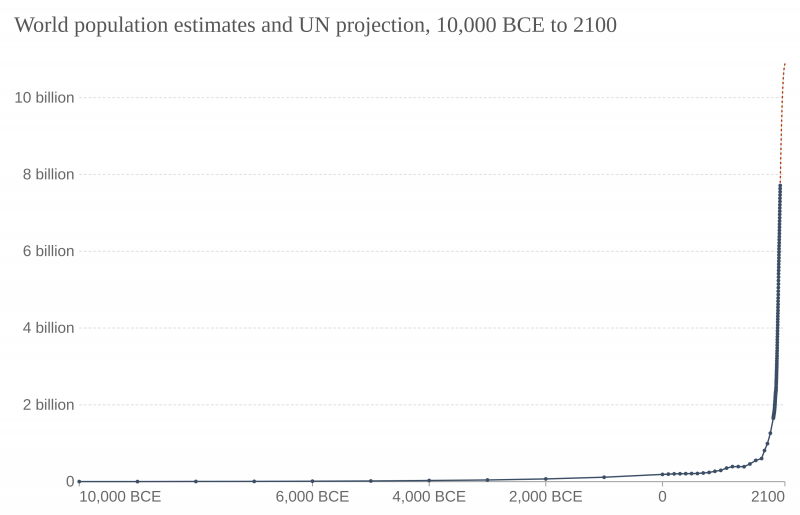
The world population the total number of living humans surpassed...
Trending
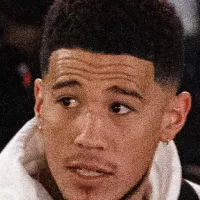
1 hour ago Devin Booker returns from injury as Haywood Highsmith debuts for Suns.

1 hour ago Marcus Smart shines with defensive prowess, racking up steals in Lakers' victory.
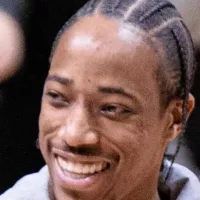
1 hour ago DeMar DeRozan Trade Rumors: Kings, Hawks Potential Suitors; NBA Picks Targeted
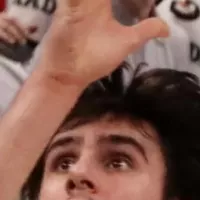
1 hour ago Maxime Raynaud Shines Despite Loss; Praised for Rookie Potential and Shooting.
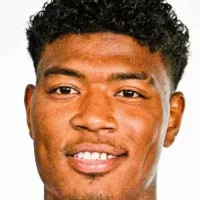
1 hour ago Rui Hachimura's demand for Lakers' focus surfaces after victories over Warriors and Kings.
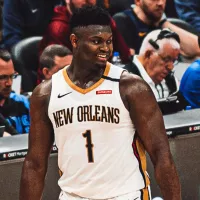
1 hour ago Zion Williamson's Status: Lakers Game, Ankle Injury, and Recent Playing Streak
Popular

Hillary Diane Rodham Clinton is a prominent American politician lawyer...

Ken Paxton is an American politician and lawyer serving as...

Jesse Jackson is an American civil rights activist politician and...

Jim Carrey is a Canadian-American actor and comedian celebrated for...

Bill Clinton served as the nd U S President from...

XXXTentacion born Jahseh Dwayne Ricardo Onfroy was a controversial yet...